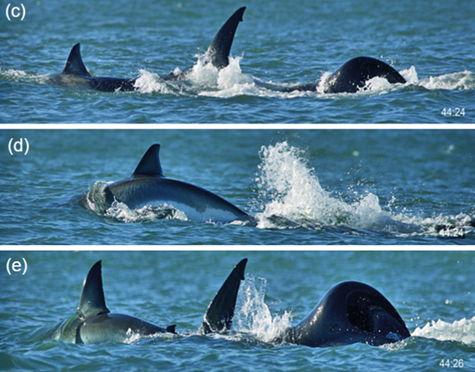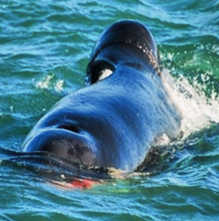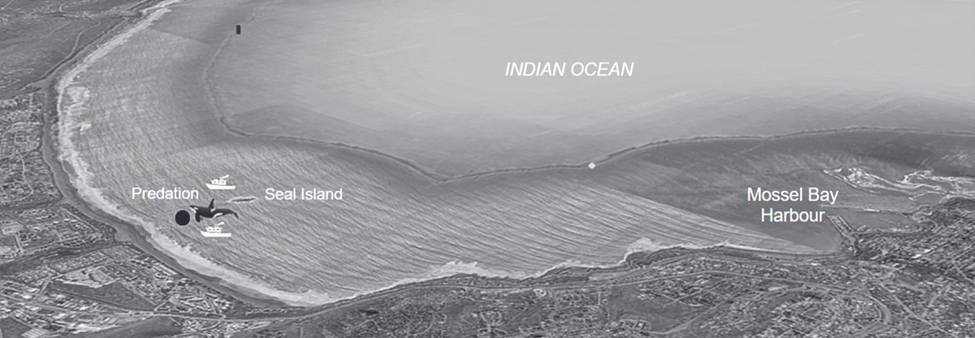Orcas, also called killer whales, are known for being vicious, but it’s not every day they take down another apex predator.

For the first time, a team of scientists observed a solo orca killing and partially devouring a great white shark off the coast of South Africa.
The encounter, which occurred in June 2023 in Mossel Bay, was outlined in a new study published this month in the African Journal of Marine Science.
According to the report — which also featured video of the unprecedented attack — the adult orca, named Starboard (after the direction of his flopped dorsal fin), sped toward the juvenile shark and tore off its left pectoral fin, “eventually eviscerating it.”

Starboard killed the eight-foot-long great white shark in under two minutes.
The orca devoured the shark’s liver, but not before he paraded around the meal like a prize, researchers said.
Alison Towner, first author of the study, told National Geographic that Starboard’s predatory behaviour “surprised” the team of researchers.

Get breaking National news
“Previously, we observed him hunting near others, noting teamwork in securing white sharks and accessing their livers,” she said.

Though killer whales have on rare occasions been observed hunting sharks in coordinated groups, this kind of solo predation has never been witnessed. Most orca attacks of sharks have been in noticeable groups of two to six, making it easier to overpower a shark and its powerful jaws.
Orcas typically travel in pods and are social animals. When taking out large or difficult prey, they often band together to attack other whales or sharks, or to knock animals like seals off floating icebergs.
That’s what makes Starboard’s behaviour so fascinating to researchers. Though solo predation is not entirely unheard of, scientists were unaware it existed with prey this large.
Not only that, but experts also fear the orca-on-shark violence (whether alone or in groups) may have real, ecological consequences for the marine life around South Africa.
Towner said great white sharks left the area around Mossel Bay for about four months following Starboard’s attack. When they returned, the number was lower (though this may also be as a result of unregulated overfishing in the region). Since the ecosystem in the area is delicate, an absence of or the presence of fewer great white sharks may influence the population of other species.
Scientists maintain, however, that more research is needed to fully understand the orca’s solo hunting of large prey, as well as its impact on the environment.
Why are killer whales eating shark livers?
The researchers recorded Starboard “with a bloody piece of peach-colored liver in its mouth.”
The study said the orca’s solitary snack may further strengthen scientific theories that killer whales are targeting sharks specifically for their dense, nutrient-rich livers.
According to National Geographic, a shark’s liver is high in fat and nutrients that can sustain an orca for a prolonged period of time. Some researchers theorize the orcas are opting only for the prized livers, while discarding the rest of the carcass, because tearing into a shark’s thick skin repeatedly would wear down a killer whale’s teeth.
Scientists have said the orcas around South Africa have been able to extract the shark livers with near-surgical precision.
Starboard was already known to have a taste for shark liver. He and another male orca, called Port (again, named for the direction of his dorsal fin), have been known to hunt together in the waters near Cape Town, South Africa. In fact, during Starboard’s solo shark attack, Port was spotted nearby, but kept his distance to allow Starboard to work alone.
National Geographic said Port and Starboard specifically have been observed harvesting livers from sevengill and great white sharks since 2015.









Comments